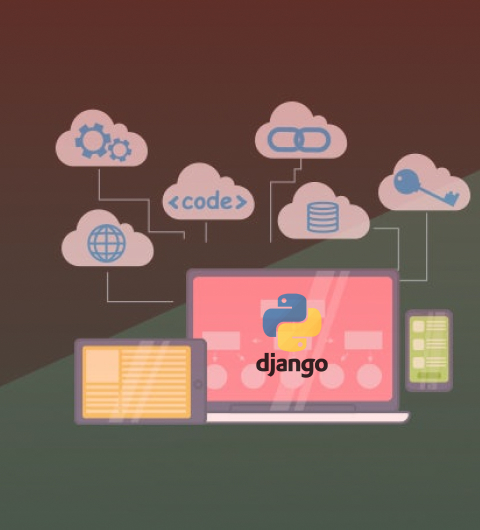_ SERVICES
Django – Python Web Framework

Django has gained immense popularity among developers due to its simplicity, robustness, and versatility.
_ Key Features and Benefits
Django follows the Model-View-Controller (MVC) architectural pattern, which helps in separating the different components of your application. This separation allows for better organization and maintainability of code, making it easier to scale and modify your application in the future.
Django provides a powerful Object-Relational Mapping (ORM) layer, which means you can interact with your database using Python objects instead of manually writing SQL queries. This makes database management much simpler and less error-prone, saving you from potential headaches down the road.
One of Django’s standout features is its built-in admin interface. With just a few lines of code, you get a full-fledged administration panel for managing your application’s data. It’s like having a personal assistant for your database, allowing you to create, edit, and delete records with the ease.
_ Built-in Components and Support
Forms are an essential part of any web application, and Django’s built-in form handling makes it a walk in the park. Django Forms allow you to create HTML forms with proper validation and error handling. You can define fields, specify validation rules, and even customize the form’s appearance. With Django Forms, you can effortlessly handle user input and ensure data integrity.
Implementing user authentication can be a daunting task, but Django’s built-in authentication system takes away the headache. Django Authentication provides everything you need to handle user registration, login, logout, and password management. You can easily define access permissions, protect views, and secure your application. With Django Authentication, you can confidently handle user authentication without reinventing the wheel.
Templates are the backbone of the visual presentation in your web application, and Django Templates make it a joy to work with. Django Templates use a simple yet powerful syntax that allows you to dynamically generate HTML pages. You can use variables, loops, conditionals, and even include other templates. Django Templates help you separate your application logic from the presentation, making your code more maintainable.
Django takes care of URL routing and handling for you. With its clean and simple syntax, you can easily define the different URLs and corresponding views for your application. This makes it effortless to navigate between pages and ensures that your users can access the right content with just a click.
Django’s flexibility allows seamless integration with various technologies and frameworks. Integration with popular front-end frameworks like React or Vue.js provides a robust stack for building modern web applications. As new technologies emerge, Django remains adaptable, ensuring compatibility and integration possibilities.
